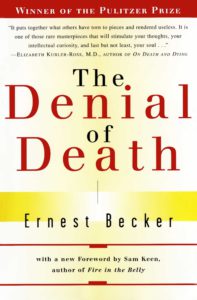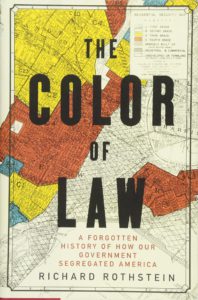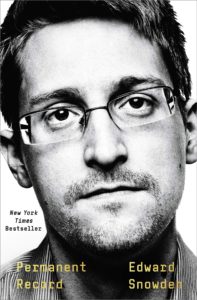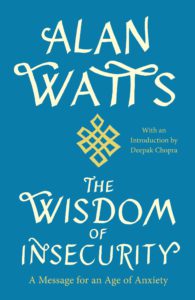Here are my choices from 2020:
Libe Check: 4.6
The Denial of Death is a psychology and philosophy, non-fiction book written by Ernest Becker in 1973. This work was awarded a Pulitzer Prize the following year. I found Becker’s philosophies remarkable and unique, especially when interpreting how the basic motivation of human behavior is driven by a biological need to control our fundamental anxiety of death: not knowing what happens when we die and the legacy we leave.
The perpetual death anxiety motivates individual and societal behaviors to create elaborate, symbolic defense mechanisms (like religion and nationality) to give life meaning and help us transcend death. But these “immortality projects”, as they are referred to in the book, are often the primary driver of human conflict, such as wars, bigotry, genocide and racism. Humans are the only animals capable of perceiving their physical self and symbolic self, which is both an advantage and a liability. To date, this has been my favorite philosophy/psychology book I have read.
Libe Check: 4.4
The Color of Law was published in 2017 and became a bestseller in 2020 amid the resurgence of racial injustice protests. Rothstein documents the history of state sponsored segregation in the US dating back to the 1800s and reveals the racially discriminatory policies sanctioned by most presidential administrations in that time.
It was shocking to read about the extent and significance that government programs (FHA, Veteran’s Authority, FDR’s New Deal, etc) have had on disenfranchising minority citizens. The extensive research conducted by Rothstein to uncover the facts and realities that are not taught in most history classes, reminded me a lot of A People’s History of the United States by Howard Zinn. This was quicker and easier to read than A People’s History of the United States, but just as enlightening.
Libe Check: 4.1
Permanent Record is the latest autobiography by Edward Snowden, which was published (perhaps contemptuously) on September 17, 2019 (Constitution Day). As you probably know, Snowden became one of the most notable whistleblowers in US history after leaking highly classified information that disclosed the extent of the government’s mass surveillance program in 2013.
The book started out a little slow as he chronicled his upbringing, so I skipped ahead to chapter 10.* As Snowden earns his security clearance and ascends the bureaucratic ranks in the following chapters, the story continuously intensifies. The last few chapters read like a fiction book, as he recounted the improbable circumstances. I was impressed with the versatility of his writing style, spanning from explaining the intricacies of technology and legislation to the overarching philosophical arguments.
*Unless I’m reading Scar Tissue (Anthony Keidis’ autobiography) again, I don’t have much interest in any adolescent that wasn’t abusing hard core drugs and sleeping with groupies twice his age.
Scar Tissue affiliate link: https://amzn.to/3qeFvzF
Libe Check: 4.1
Alan Watts was a British philosopher whose works were influenced by his expertise in Eastern philosophies including Zen Buddhism and Taoism. Although The Wisdom of Insecurity was published in 1951, I found his insights to still be applicable today. Watts argues that insecurity is the consequence of trying to be secure, and emphasises the value of stability in an age when human life is vulnerable and uncertain.
“But I fall straight into contradiction when I try to act and decide in order to be happy, when I make ‘being pleased’ my future goal. For the more my actions are directed towards future pleasures, the more I am incapable of enjoying any pleasures at all. For all pleasures are present…”
I found this to be a very felicitous read during a global pandemic, when living in the present was not an ideal state of mind.
Hope you enjoyed this list! Let me know your thoughts!







